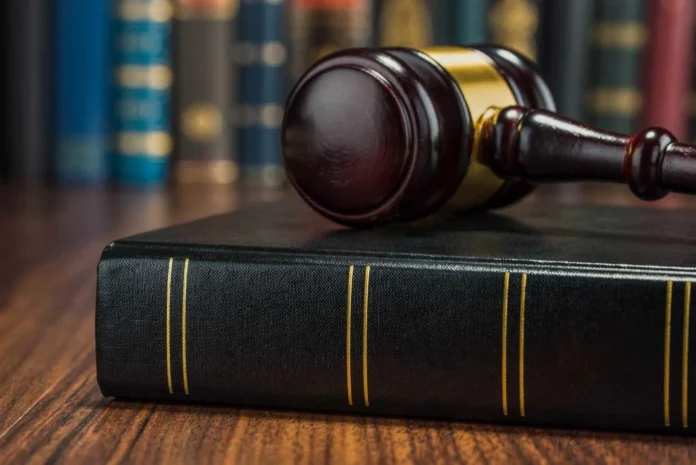
If a student is charged with a university violation or misconduct, it puts their life at stake, including their career, academic reputation, and future opportunities. Parents must ensure that their child is backed up by a solid legal team that will protect them from the allegations. Additionally, they will provide the student with a calculated and well-analyzed opinion for the action plan.
If things go wrong, this can lead to arrest and criminal charges, further creating more complexities that can negatively impact the child’s future. Not only is this challenging concerning academics but also challenging for one’s mental health. Getting an efficient lawyer will require a bit of work without proper guidance until now. You can visit studentdisciplinedefense.com to know what you should do next.
What is Academic Misconduct?

Before jumping directly to the steps that are necessary for contesting charges against academic misconduct, it would be essential to be aware of the basics first. Academic misconduct occurs when an individual does not act with integrity within an academic complex.
Academic misconduct is mainly an act by a student. When a student gains an academic advantage with unfair means, it will likely be termed academic misconduct. Academic misconduct could be evaluated by whether or not the student knew of their practices and actions.
Irrespective of the students’ knowledge about academic misconduct, academic misconduct can be charged against a student if their evaluation for misconduct comes out to be true. A student must verify their academic integrity without being late for assignments and submissions.
What constitutes academic misconduct?
Below are some of the activities or actions by a student that would constitute academic misconduct:
- Plagiarism: Copying or pasting someone else’s ideas, writings, or thoughts as your own can be termed plagiarism.
- Cheating: Cheating is one of the most common types of academic misconduct. Cheating involves copying or looking at someone else’s work or exam.
- Submitting the same assignments for more than one course without the instructor’s permission
- Copying or impersonating another person’s piece of work, test, or examThis scenario most likely involves appointing someone else to appear for tests and exams. Not only students but the person appointed for attempting exams or tests can be accused of academic misconduct.
- Unauthorized collaboration on individual assignments, submissions, tests, or exams. Some instructors or professors will ask students to participate in groups for assignments and term work. However, grounds for academic misconduct can be formed if the student tries to collaborate or form a group with someone who has not been approved.

- Forging, falsifying, or misrepresentation of academic documents and records. All academic records and essential documents are prohibited. Academic misconduct can be likely if a student is found doing such an act.
- Obtaining or purchasing exam paper assignments
- Distribution of faculty property
Often, students are found to be distributing faculty intellectual property without permission. Such an action could either take place individually or with the help of a third party which will result in an academic misconduct case.
The scenarios mentioned above can lead one student to be charged with academic misconduct. The accused student must consult an attorney if they think the case can land in their favor or ruling.
Steps that you must take when contesting charges against academic misconduct.
After intense discussion with your legal team and coming up with a plan of action when you finally disagree with the accusation that you have been charged with, and Academic Misconduct Panel hearing is held to analyze your case critically. Here are the four steps that conventionally are followed:
- It would be best if you went through all the rules, books, by-laws, and the compendiums that have been made by the organization, school, or universities to prove that you did not do anything that made you an offender. Just because you were unaware of the rules, one cannot be exempted from the allegations.
- The next step is to schedule a one-on-one meeting with the course instructor to understand their point of view on the allegations you have been charged with. They will briefly explain why and for what you have been accused of. During this meeting, you must also carry evidence or documents that can prove you innocent. Remember that you will not start a debate with the instructor over there, but you will understand the entire scenario. There might be a possibility that the instructor can drop the accusations.
- If your meeting with your instructor did not go according to what you expected, you must take the following approach: to reach out to the Head of the Department. While meeting the Head of the Department, you have to explain the same thing; if the respected authorities find your reason suitable enough, they can intervene with the instructor and drop the charges.
- If none of the plans have worked out for you, then your plea for a grievance hearing in front of the Academic Misconduct Panel. This will be your final resort to disagree with the acquisitions and accept the consequences you are governing.
Indeed an attorney will assist you with small details in the case that will get the ball in your court, but still, you need to be extra cautious and safeguard yourself.
Is it necessary to hire a lawyer for an academic Misconduct case?

Many students may ask if they need to hire a legal professional for their case or if the matter will usually be resolved within the academic institute. However, a student may likely need help from a lawyer when dealing with an academic misconduct case.
A student who is accused of academic misconduct must go through a disciplinary panel. The panel comprises fellow students, faculty, and other institute staff. Depending on the case, the proceeding of this hearing can be informal or formal.
It could be crucial and help the students state their side of the story. In such cases, it would be most helpful for the student to consult an attorney about their case. The lawyer can help you prepare for the disciplinary hearing, anticipate the questions that might be asked, and provide tips for the case.











